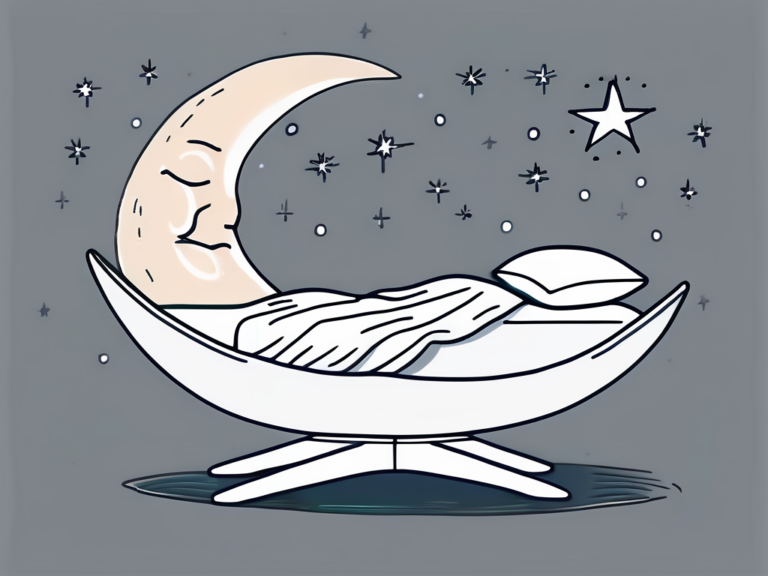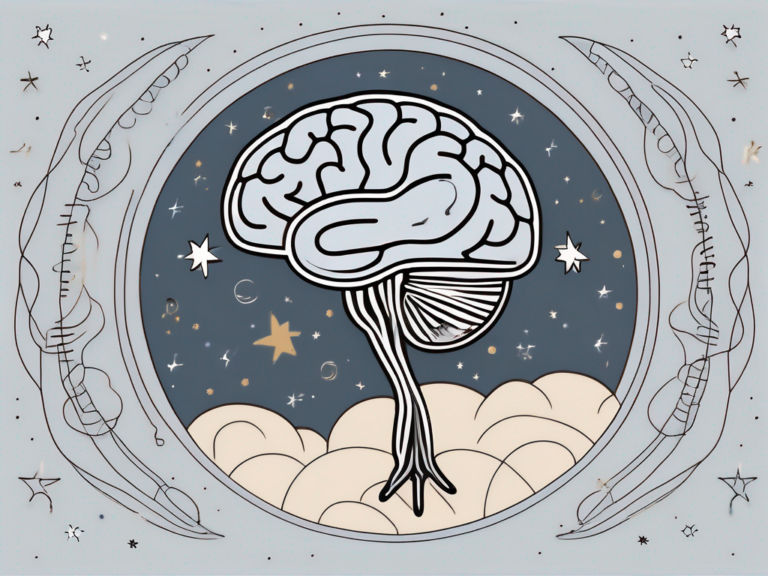vasovagal and Sleeping
If you’ve ever experienced episodes of dizziness, lightheadedness, or fainting, you may be familiar with the term “vasovagal syncope.” This condition, although not life-threatening, can be quite unsettling and often leaves people wondering about its connection to sleep. In this article, we’ll explore the fascinating relationship between vasovagal syncope and sleep, shedding light on its symptoms, triggers, and impact. So, let’s dive in!
Understanding Vasovagal Syncope
Vasovagal syncope is a common form of fainting that occurs when your body overreacts to certain triggers, such as emotional stress, pain, or standing up for prolonged periods. During a vasovagal episode, your heart rate and blood pressure drop suddenly, leading to a momentary loss of consciousness.
What is Vasovagal Syncope?
Vasovagal syncope is a reflex-mediated response that involves the autonomic nervous system. The vagus nerve, in particular, plays a crucial role in this phenomenon. When stimulated, the vagus nerve triggers the release of a chemical messenger called acetylcholine, which causes your blood vessels to dilate and your heart rate to slow down. As a result, blood flow to the brain decreases, leading to fainting.
Furthermore, individuals with a history of vasovagal syncope may experience warning signs before fainting, such as lightheadedness, nausea, or visual disturbances. These prodromal symptoms serve as an alert for the impending loss of consciousness, allowing some individuals to take preventive measures, such as lying down or sitting with their head between their knees, to avoid fainting.
The Connection Between Vasovagal Syncope and Sleep
While vasovagal syncope can occur at any time, there is indeed a noteworthy correlation between this condition and sleep. Many individuals report experiencing syncope episodes during nighttime or upon waking up. Although the exact reasons for this connection are still under investigation, certain factors may contribute to this phenomenon.
One possible explanation for the increased incidence of vasovagal syncope during sleep is the shift in autonomic nervous system activity that occurs during different stages of the sleep cycle. Changes in heart rate, blood pressure, and overall cardiovascular function during sleep may predispose individuals to vasovagal episodes, especially during the transition between sleep stages.
Symptoms and Triggers of Vasovagal Syncope
Before delving into the relationship between vasovagal syncope and sleep, let’s first explore the typical symptoms and triggers associated with this condition.
Vasovagal syncope, also known as neurocardiogenic syncope, is a common cause of fainting episodes. It occurs when your body overreacts to certain triggers, leading to a sudden drop in heart rate and blood pressure. Understanding the symptoms and triggers of vasovagal syncope is crucial for managing and preventing episodes.
Common Symptoms
Vasovagal syncope often manifests with warning signs, allowing you the opportunity to take preventive measures before fainting occurs. These warning signs include dizziness, lightheadedness, blurred vision, sweating, and nausea. In some cases, individuals may experience tunnel vision or a sudden feeling of warmth before losing consciousness. It’s essential to recognize these symptoms to avoid potential injury from falls and to seek medical attention if fainting episodes persist.
Additionally, some individuals may experience prodromal symptoms such as yawning, paleness, and a feeling of unease before a vasovagal episode. These early signs serve as a signal for the impending loss of consciousness, providing a window of opportunity to lie down or sit with your head between your knees to increase blood flow to the brain.
Identifying Triggers
Triggers for vasovagal syncope vary from person to person. Some common triggers include emotional stress, physical pain, hot or crowded environments, standing up for extended periods, and even the sight of blood or needles. Dehydration, intense fear, and sudden exposure to extreme temperatures can also precipitate vasovagal episodes. By identifying your personal triggers through a detailed symptom diary or consultation with a healthcare provider, you can develop strategies to minimize the occurrence of vasovagal episodes.
It’s important to note that while vasovagal syncope is typically not a life-threatening condition, recurrent fainting episodes can significantly impact your quality of life. Seeking medical evaluation to rule out underlying heart conditions or other serious causes of syncope is essential for proper management and treatment.
The Impact of Sleep on Vasovagal Syncope
Now, let’s delve deeper into the fascinating relationship between sleep and its effects on vasovagal syncope.
Sleep Quality and Vasovagal Episodes
Studies have indicated that the quality of sleep and disturbances in the sleep-wake cycle can play a crucial role in influencing the frequency of vasovagal episodes. Factors such as sleep deprivation, insomnia, and irregular sleep patterns have been associated with an increased sensitivity to triggers of syncope, potentially heightening the susceptibility to fainting episodes. Therefore, prioritizing optimal sleep hygiene practices and addressing any underlying sleep disorders are essential steps in effectively managing vasovagal syncope.
Moreover, the body’s autonomic nervous system, which regulates functions such as heart rate and blood pressure, can be significantly impacted by the restorative processes that occur during sleep. Disruptions in these processes, caused by poor sleep quality, can disrupt the delicate balance of the autonomic nervous system, potentially triggering vasovagal responses and increasing the likelihood of syncope.
Sleep Disorders and Vasovagal Syncope
Additionally, specific sleep disorders have been identified as potential contributors to the increased prevalence of vasovagal syncope. Conditions like sleep apnea, characterized by pauses in breathing during sleep, and narcolepsy, a disorder marked by uncontrollable daytime sleepiness, have been linked to the exacerbation of syncope symptoms. By effectively managing these underlying sleep disorders through appropriate medical interventions, individuals can experience improvements in sleep quality and a reduction in the occurrence of syncope episodes.
Furthermore, the intricate interplay between the various stages of sleep, such as rapid eye movement (REM) and non-REM sleep, can influence the body’s physiological processes and impact the regulation of blood pressure and heart rate. Disruptions in these sleep stages, often seen in individuals with sleep disorders, can disrupt the autonomic nervous system’s function, potentially leading to an increased susceptibility to vasovagal syncope.
Managing Vasovagal Syncope
Now that we understand the intricate relationship between vasovagal syncope and sleep, let’s explore some practical strategies for managing this condition.
Vasovagal syncope, also known as neurocardiogenic syncope, is a common cause of fainting episodes and is often triggered by emotional stress, pain, or standing for long periods. It occurs when the body overreacts to certain triggers, leading to a sudden drop in heart rate and blood pressure, resulting in a temporary loss of consciousness. Understanding the underlying mechanisms of vasovagal syncope is essential in developing effective management strategies.
Lifestyle Changes for Better Sleep
Improving your sleep hygiene can have a positive impact on vasovagal syncope. Creating a relaxing bedtime routine, maintaining a consistent sleep schedule, and ensuring a comfortable sleep environment are essential steps to promote restful sleep. Additionally, avoiding excessive caffeine and alcohol intake, particularly close to bedtime, can help regulate your sleep patterns and minimize the risk of syncope episodes.
Furthermore, incorporating stress-reducing activities such as mindfulness meditation, yoga, or deep breathing exercises into your daily routine can help manage the emotional triggers that contribute to vasovagal syncope. By addressing both physical and emotional aspects, you can create a holistic approach to improving your overall well-being and reducing the frequency of fainting episodes.
Medical Treatments and Interventions
If lifestyle changes alone don’t provide sufficient relief, medical treatments may be considered. However, it’s crucial to consult with a healthcare professional for an accurate diagnosis and appropriate treatment plan. Medications, such as beta-blockers or anticholinergic drugs, may be prescribed to regulate heart rate and blood pressure and reduce the likelihood of vasovagal episodes. In some cases, a pacemaker may be recommended to control the heart’s electrical activity and prevent fainting.
Moreover, lifestyle modifications, such as increasing salt and fluid intake to expand blood volume and wearing compression stockings to improve blood flow to the heart and brain, can complement medical interventions in managing vasovagal syncope. By combining various treatment approaches tailored to individual needs, individuals with vasovagal syncope can effectively reduce the impact of this condition on their daily lives.
Frequently Asked Questions About Vasovagal Syncope and Sleep
Let’s address some commonly asked questions regarding the relationship between vasovagal syncope and sleep.
Can Vasovagal Syncope Occur During Sleep?
Yes, vasovagal syncope can occur during sleep. Many individuals have reported experiencing fainting episodes while asleep or upon waking up. Sleep-related vasovagal episodes can be particularly distressing, as they may disrupt your sleep and leave you feeling fatigued during the day.
How Does Sleep Affect Vasovagal Syncope?
Sleep, or more precisely, the quality and pattern of sleep, can significantly impact the frequency and severity of vasovagal syncope. Poor sleep quality, sleep deprivation, and certain sleep disorders can increase the likelihood of syncope episodes. Conversely, improving sleep hygiene and effectively managing sleep disorders can help mitigate the occurrence of vasovagal syncope.
It is important to note that the relationship between sleep and vasovagal syncope is complex and multifaceted. One aspect to consider is the influence of sleep stages on syncope episodes. During the rapid eye movement (REM) stage of sleep, which is associated with vivid dreaming, the body experiences muscle atonia, a state of temporary paralysis to prevent acting out dreams. This muscle atonia can potentially trigger vasovagal syncope in susceptible individuals, leading to fainting episodes during REM sleep.
Furthermore, sleep disorders such as sleep apnea, narcolepsy, and restless leg syndrome have been found to have a higher prevalence among individuals with vasovagal syncope. These disorders can disrupt the normal sleep architecture and exacerbate the occurrence of syncope episodes. Addressing and effectively managing these sleep disorders through appropriate medical interventions can significantly improve the overall well-being of individuals with vasovagal syncope.
In conclusion, while vasovagal syncope and sleep may seem unrelated at first, there is a meaningful connection between the two. Understanding this relationship can empower you to make informed decisions about your sleep habits and seek appropriate medical guidance. Remember, each person’s experience with vasovagal syncope is unique, so it’s essential to consult with healthcare professionals for individualized advice. By prioritizing healthy sleep and seeking proper management of vasovagal syncope, you can take charge of your well-being and navigate the journey toward better sleep and fewer syncope episodes. Sweet dreams and syncope-free nights await!






